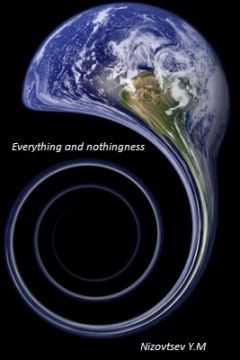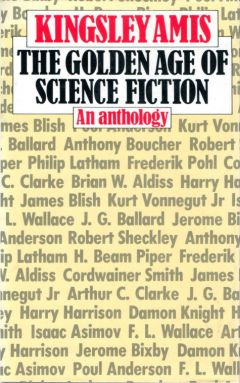Mad but benign, seeking internal order.
Unlike the slashing, plundering, mocking monster he was after.
Beast of the highway.
Disorder, internal collapse-hell on earth-was what this one craved.
Daniel resolved to burn him.
He sat behind a one-way mirror and watched Daoud conduct the interview. Hardly a sophisticated concealment, but if Abdin Barakat noticed it, he gave no sign.
The Arab detective had all the right moves-authority, compassion, patience, appeals to a husband's desire to find his wife's murderer and avenge her death. But to no avail in the beginning: Barakat blocked him out as completely as he had Daniel.
If grief was proportional to devotion, no man had ever possessed greater love for a woman than Abdin Barakat for Shahin. His grief was silent but all the stronger for it, as eloquent an opera of woe as Daniel had ever heard.
He looks dead himself, Daniel thought. Sunken-cheeked, stiff, lifeless features, lusterless eyes half-hidden in the darkness of cavernous sockets. The coarse complexion bleached pale as gauze bandage. A young man mummified by suffering.
Eight years older than Shahin, but that still made him young. Tall, sparely built, with short, poorly cut hair, the cracked fingernails and grease-stained clothes of a working man.
An ironworker in one of the stalls in the Old City. Repairer of pots and pans, family business-the father was the boss. And the landlord. For four married years, home had been two rooms tacked on illegally to the top story of the Barakat family dwelling in the Muslim Quarter. A cooking space and a tiny bedroom for Abdin and Shahin-their names rhymed; it implied a certain harmony-because without children, what need was there for more?
The childlessness was at the root of the divorce, Daniel was sure. Four barren years would have stretched the tolerance of Abdin's family. The Muslims had no use for a woman who didn't bear, made it exquisitely easy for a man to dispose of her: Talaq, verbal denouncement unencumbered by justification, set the divorce process in motion. Three denouncements, and the break was final.
On the other side of the mirror, Barakat began weeping, despite himself; the breakdown was beginning. Daoud handed him a tissue, He clutched it, wept harder, tried to force back the tears but failed. Burying his face in his hands, he moved it back and forth, as if shaking his head no. Daoud pulled out another tissue and tried again.
Patience paid off. Eventually, after two hours of listening and tissue-offering and gently prodding, Daoud got Barakat talking-softly but rapidly, in near-hysterical spurts.
A fragile victory, and the Arab detective knew it. He put his body language into the interrogation, bringing his face so close to Barakat's that they could have kissed, placing his hands on the husband's shoulders and exerting subtle pressure, his knees touching Barakat's knees. Shutting out the room, the universe, so that only questioner and answerer existed in empty white space.
"When's the last time you saw her, Mr. Barakat?"
Barakat stared at the floor.
"Try to remember. It's important, Mr. Barakat."
"M-Monday."
"This past Monday?"
"Yes."
"You're certain of that?"
"Yes."
"Not Sunday or Tuesday?"
"No, Monday was the day-" Barakat burst into tears, buried his face in his hands again.
Daoud looked past the heaving shoulders, through the mirror at Daniel, raised his eyebrows, and tapped the table silently. Glancing at the tape recorder on the table, he waited until Barakat's sobs diminished to sniffles before continuing.
"Monday was the day what, Mr. Barakat?"
"It was
complete."
"What was complete?"
No answer.
"The third talaq?" prompted Daoud.
Barakat's reply was barely audible: "Yes."
"The divorce was final on Monday?"
Jerky nods, tears, more tissues.
"Was Shahin scheduled to leave your house on Monday?"
"Yes."
"Where was she planning to go?"
Barakat uncovered his face. "I don't know."
"Where does her family live?"
"There is no family, only a mother in Nablus."
"What about the father?"
"Dead."
"When did he die?"
"Many years ago. Before the
" Tears flowed down the sunken cheeks, wetting the lacerations and causing them to glisten.
"Before you were married?"
"Yes."
"What about brothers or sisters?"
"No brothers or sisters."
"An only child? Not a single male in the family?" Daoud's tone was laden with disbelief.
"Yes, a great shame." Barakat sat up straighter. "The mother was a poor bearer, useless organs, always with the female sicknesses. My father said
"
Barakat stopped mid-sentence, turned away from the detective's eyes. One hand picked absently at the scratches on his face.
"What did your father say?"
"That
"Barakat shook his head, looked like a dog that had been kicked too often.
"Tell me, Abdin."
A long moment passed.
"Surely the words of one's father are nothing to be ashamed of," said Daoud.
Barakat trembled. "My father said
he said that Shahin's mother's loins were cursed, she'd been possessed by a spirit-a djinn. He said Shahin carried the curse too. The dowry had been obtained deceitfully."
"A djinn."
"Yes, one of my old aunts is a kodia-she confirmed it."
"Did this aunt ever try to chase out the djinnj Did she beat the tin barrel?"
"No, no, it was too late. She said the possession was too strong, agreed with my father that sending Shahin away was the honorable thing to do-as a daughter, she, too, was afflicted. The fruit of a rotten tree."
"Of course," said Daoud. "That makes sense."
"We were never told of the djinn before the wedding," said Barakat. "We were cheated, my father says. Victimized."
"Your father is a wise businessman," said Daoud. "He knows the proper value of a commodity."
Daniel heard sarcasm in the remark, wondered if Barakat would pick it up too. But the young man only nodded. Pleased that someone understood.
"My father wanted to go to the waqf," he said. "To demand judgment and reclaim the dowry from the mother. But he knew it was useless. The crone no longer owns anything-she's too far gone."
"Far gone?"
"Up here." Barakat tapped his forehead. "The djinn has affected her up here as well as in her loins." He scowled, sat up higher, square-shouldered and confident, the guilt-ridden slump suddenly vanished. Reaching out, he took a drink from the water glass that, till then, had gone untouched.
Watching the change come over him, Daniel thought: Plastering over the rot and mildew of sorrow with a layer of indignation. Temporary patchwork.
"The mother is mad?" asked Daoud.
"Completely. She drools, stumbles, is unable to clean herself. She occupies a cell in some asylum!"
"Where is this asylum?"
"I don't know. Some foul place on the outskirts of Nablus."
"Shahin never visited her?"
"No, I forbade it. The contagion-one defect was bad enough. The entire line is cursed. The dowry was obtained deceitfully!"
Daoud nodded in agreement, offered Barakat more water. When the young man had finished drinking, Daoud resumed his questioning, searching for a link to Shahin's whereabouts after her expulsion, inquiring about friends or acquaintances who might have taken her in.
"No, there were no friends," said Barakat. "Shahin shuttered herself in the house all day, refused to have anything to do with other women."
"Why was that?"
"Their children bothered her."
"She didn't like children?"
"At first she did. Then she changed."
"In what way?"
"They reminded her of her defect. It sharpened her tongue. Even the children of my brothers made her angry. She said they were ill-trained-a plague of insects, crawling all over her."
An angry, isolated woman, thought Daniel, no friends, no family. Stripped of the security of marriage, she'd have been as helpless as Fatma, as rootless as Juliet.
Picking off the weak ones.
But where had the herd grazed?
"Let's go back to Monday," said Daoud. "The last time you saw her, what time was it?"
"I don't know."
"Approximately."
"In the morning."
"Early in the morning?"
Barakat tapped his tooth with a fingernail and thought. "I left for work at eight. She was still there
" The sentence died in his throat. All at once he was crying again, convulsively.
"She was still there what, Abdin?"
"Oh, oh, Allah help me! I didn't know. Had I known, I never
"
"What was she doing when you left for work?" Daoud pressed softly but insistently.
Barakat kept crying. Daoud took hold of his shoulders, shook him gently.
"Come, come."
Barakat quieted.
"Now, tell me what she was doing the last time you saw her, Abdin."
Barakat muttered something unintelligible.
Daoud leaned closer. "What's that?"
"She was
Oh, merciful Allah! She was cleaning up!"
"Cleaning what up, Abdin?"
Sobs.
"The kitchen. My dishes. My breakfast dishes."
After that. Barakat became withdrawn again, more mannequin than man. Answering Daoud's questions but perfunctorily, employing grunts, shrugs, nods, and shakes of the head whenever they could substitute for words, muttered monosyllables when speech was necessary. Pulling the information out of him was a frustrating process, but Daoud never flagged, taking the husband over the same territory time and time again, returning eventually to the issue that had driven a wedge between him and Shahin.
"Did she ever take steps to correct her defect?" Phrasing it so that all the responsibility rested on the woman's shoulders.
Nod.
"What kind of steps?"
"Prayer."
"She prayed, herself?"
Nod.
"Where?"
"Al Aqsa."
"Did others pray for her as well?"
Nod.
"Who?"
"My father petitioned the waqf. They appointed righteous old men."
"To pray for Shahin?"
Nod. "And
"
"And what?"
Barakat started to cry again.
"What is it, Abdin?"
"I-prayed for her too. I recited every surah in the Quran in one long night. I chanted the zikr until I fainted. Allah shut his ears to me. I am unworthy."
"It was a strong djinn," said Daoud. Playing his part well, thought Daniel. He knew what Christians thought of Muslim spirits.
Barakat hung his head.
Daoud looked at his watch. "More water, Abdin? Or something to eat?'
Shake of the head.
"Did Shahin ever consult a doctor?"
Nod.
"Which doctor?"
"A herbalist."
"When?"
"A year ago."
"Not more recently?"
Shake of the head.
"What's the herbalist's name?"
"Professor Mehdi."
"The Professor Mehdi on Ibn Sina Street?"
Nod.
Daoud frowned, as did Daniel, behind the glass. Mehdi was a quack and illegal abortionist who'd been busted several times for fraud and released when the magistrates took seriously his lawyer's claims of ethnic harassment.
"What did Professor Mehdi advise?"
Shrug.
"You don't know?"
Shake of the head.
"She never told you?"
Barakat started to throw up his hands, got midway to his shoulders, and let them drop. "He took my money-it didn't work. What was the use?"
"Did she see a medical doctor?"
Nod.
"After she saw Professor Mehdi or before?"
"After."
"When?"
"Last month, then later."
"When later?"
"Before she
" Barakat chewed his lip.
"Before she left?"
Nod.
"When before she left?"
"Sunday."
"She saw this doctor the day before she left?"
Nod.
"Was she going for treatment?"
Barakat shrugged.
"What was the purpose of her appointment?"
Tension, then a shrug.
Daoud tensed also, looked ready to throttle Barakat. Tapping the table with his fingertips, he sat back, forcing a reassuring smile onto his face.


